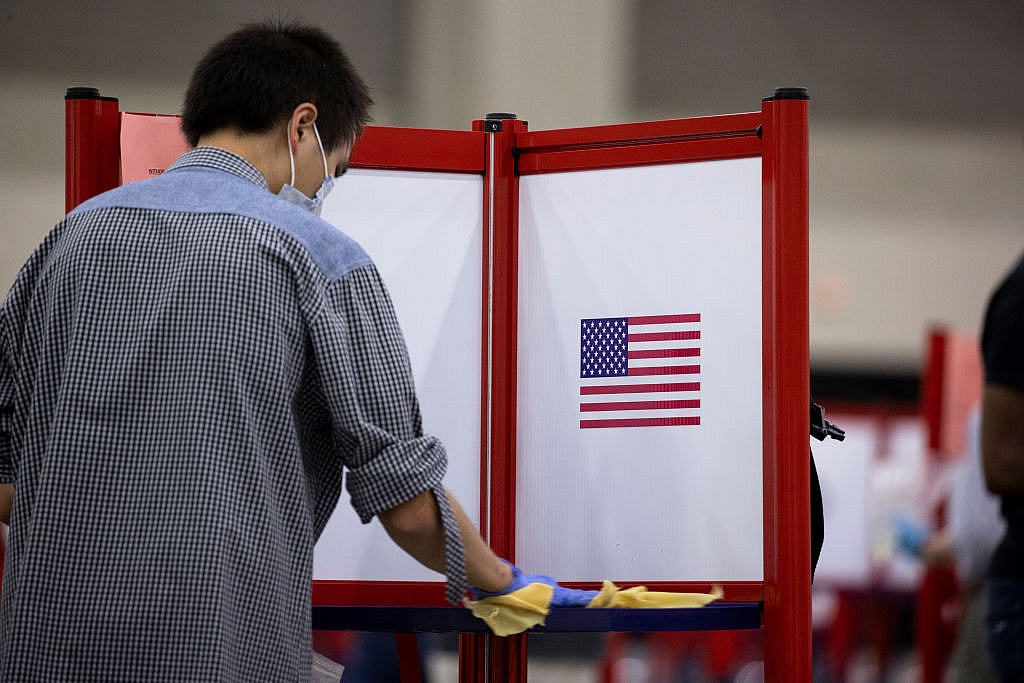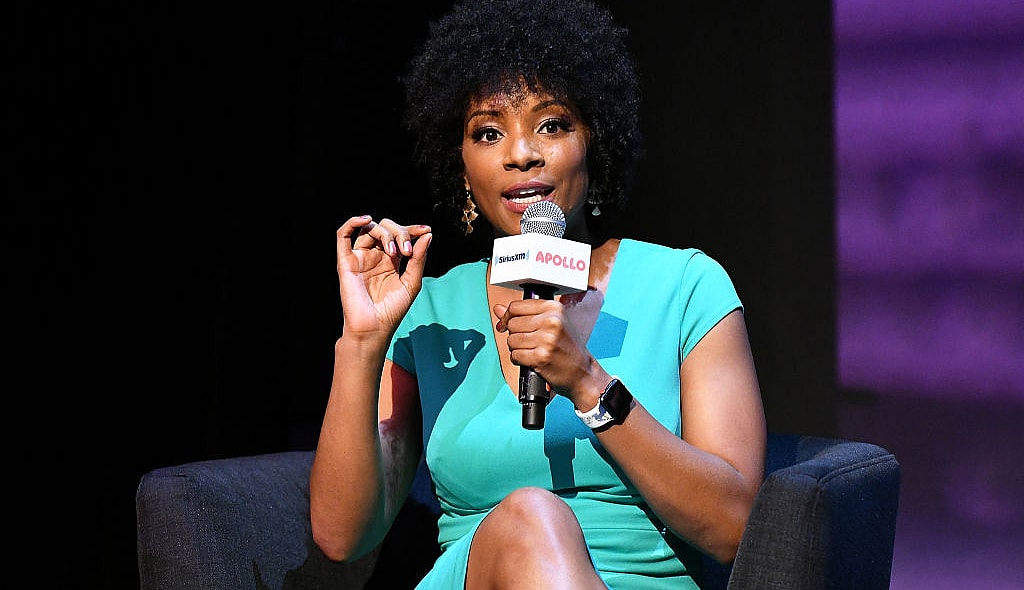When I hopped on Zoom on Thursday afternoon with Zerlina Maxwell to discuss her new book, The End of White Politics: How to Heal Our Liberal Divide, she was already waiting for me—a whole two minutes early.
This kind of punctuality is exemplary of Maxwell’s writing: precise, sharp, and always on point. In her book, which came out in July 2020, Maxwell gives an insider perspective to what went wrong in 2016 and what the Democratic party needs to do differently in 2020. From the power in identity politics to the danger in moderate politics, Maxwell writes with clarity and wisdom albeit with a lack of cohesiveness or flow at times.
Read More: Despite virus threat, Black voters wary of voting by mail
The more well-versed political reader may find Maxwell’s writing rudimentary and repetitive, but for those new to the game, it’ll shed a compelling light as she outlines what a successful Democratic party of tomorrow might look like.
Noëlle: One of the first things I wanted to ask you about was the title of the book, I think is so eye opening and really attention grabbing. In short, what is the end of white politics?
Zerlina: One of the things I always have to say when folks ask that from the jump is that we’ve always been doing white politics if you really pay attention. What I’m trying to say with the title is sort of to be bold, to make a bold statement, but to also get folks to recognize that what we’ve been doing this whole time in America. Since [the country’s] founding is white in politics, where whiteness and white people and what they want and what they need are the the focal point of all of our political conversations, and everything else dreams from there. What I’m saying in the book is, “Let’s stop doing that. It’s not benefiting anyone.” Frankly, I think quarantine has made that much more clear because what we realized is that Donald Trump is in charge. He’s completely incompetent, and we are going to be the most deeply harmed by his policies. It’s not just that he’s racist. It’s not just that he’s a misogynist, but also that his policies are racist and harmful to the same communities that most of us really care about. What I’m saying in the book is we should expand the spectrum through which we have concerns for certain policies and care about certain policies, but also the conversation.

N: Yeah. What do you think led to that shift or caused that shift to where these marginalized communities and people of color, and women and people with disabilities now are really the electorate that, in your book, you’re saying these candidates need to be paying attention to in the Democratic party?
Z: Well, I think that it’s not a new thing. It’s that we sort of got distracted with 2016. It shocked us all sort of into a moment where we were like we’re doing this wrong. We should have focused on economic issues as if economic issues don’t intersect with all of those other issues. And in fact, racism and gender inequality, those impact your economic status. Equal pay is not just an issue for women, it’s an issue for their whole family. It is an economic issue. Fundamentally, access to reproductive health care is an economic issue. A decision to have a child or not is always an economic decision for women. I think often we silo off the issues that don’t directly impact white men in particular. And we sort of say, well, that’s identity politics. But instead, what we should say is everything is identity politics. White people have an identity. It’s not a blank, invisible default identity. It is an identity. And frankly, during the Trump era, we should all see that very clearly.
N: Yeah, I find that to be very compelling, where you mentioned that assuming that white politics is not an identity implies that that’s because whiteness is the default. I think that’s really interesting and important that you point that out. And when you talk about identity politics, you explain how it’s nothing new. It’s something that Republicans have for decades played into sometimes inconspicuously, sometimes conspicuously. How do you think Democrats need to be engaging in identity politics to win in 2020?
Z: I think that one of the things that the Democrats can do in this moment is really just speak truth to power on those issues. You know, talk about racism and the impact on communities, talk about racial justice and the impact on our communities where we have a lack of funding and education. Don’t just talk about racial justice in terms of mass incarceration, but talk about the full humanity of Black people. Same is true for the next community. Don’t just talk about immigration when you’re talking to Latino voters. Right now, it’s life and death, because this vote in November is not a vote for a Democrat or Republican. It is a vote to live literally. You can’t equivocate. You can’t be afraid to offend the white moderate or the white voter that voted for Donald Trump. They need to hear the truth, too. They need to know that they supported somebody who’s actively harming Black and brown communities.
N: You mentioned the white moderates in the “White Resistance” chapter. I kept picturing when you talked about how Democrats were obsessed with this, like somehow long lost white swing voter, [the] white moderate. What would you say to detractors who argue that abandoning folks in the middle just furthers the political divide?

Z: Well, one thing that folks need to understand is that Democrats have not won a majority of the white vote since 1964. We’ve lost these voters for a very long time. They’re long gone. They’ll say, well, we still have to go after those moderate voters because it is ultimately about the margins. And that’s true. But you can make up the margin by going after a million Black people that did not turn out between 2012 and 2016. Don’t you think that’s going to be easier for you to do instead of going to the moderate white voter who had to overlook all of all of the things Donald Trump has ever said about black people, about brown people, about women, about immigrants, about Muslims?
N: Well, the last thing I want to ask you before I let you go, we are in such a tense moment with uprisings and civil unrest around the country with this renewed push to address police violence and racial inequality—compounded with economic crises and a global pandemic leading up to a presidential election. With all of that going on, what do you really feel is the bottom line, particularly for the Democratic Party?
Read More: Biden says Russians are meddling in 2020 election
Z: I think that this is a strange election where you may not need so much of a heavy lift in terms of your message. But I do think that one of the parts of his messages needs to be a full accounting on his past. He can say if he can acknowledge where he’s gone wrong. But I also just think that “I’m not Donald Trump” is a good campaign slogan. It’s just not a turnout message, though. It won’t compel you to turn out, but that doesn’t mean that he shouldn’t try to at least both say, “No I’m no Trump. I’m competent and I’ll make sure your family has the vaccine.” That’s both a message of both: “I’m not Trump” and “Here’s what I’m gonna do for you in the practical sense.”
Have you subscribed to theGrio’s new podcast “Dear Culture”? Download our newest episodes now!


